
ACT BootCamp® in Nevada , January 2026
January 8 to January 11, 2026
Get up to 32 CE hours
Join our master trainers Steven C. Hayes, Robyn D. Walser, Miranda Morris, and Diana Hill in this foundational workshop, and learn the skills to facilitate meaningful change.
*These events sell out. Secure your spot today.*

University of Nevada, Reno
Please note: The start time for this event has been delayed due to snow. The student union building is closed until 9am. We will start as promptly as possible after that. Our apologies for the delay. We appreciate your patience.
Acceptance and Commitment Therapy (or ACT) offers a radical new understanding of human well-being, and has become one of the best studied intervention approaches in all of psychology – based on more than four decades of research, with over 1,400 randomized controlled trials and thousands of studies of other kinds.
By targeting psychological flexibility and its social and bodily extensions – the core processes known to underlie meaningful change – ACT empowers you to help your clients across a wide range of problem areas and aspirational goals in mental and behavioral health and social wellness areas.
Whether they are struggling with anxiety, depression, trauma, or addiction; or are dealing with the challenges of physical disease, or want to be a better parent or partner, ACT can help your clients.
Because of its high effectiveness and broad applicability, ACT has found wide-spread appeal among practitioners around the world, and has been endorsed as evidence-based by such agencies as the American Psychological Association and the World Health Organization. Regardless of whether you consider yourself a complete beginner or experienced in other approaches, ACT BootCamp® will help you acquire a proven skill-set that will help your clients make effective, long-lasting changes.
Do not delay though. Seating is limited and the last ACT BootCamp completely sold out.
Location
The Joe Crowley Student Union at the University of Nevada, Reno provides an ideal setting for deep learning and meaningful connection. Nestled between the Sierra Nevada mountains and downtown Reno’s vibrant cultural scene, the venue offers modern amenities, welcoming spaces, and convenient access to lodging, dining, and local attractions. It’s a place designed for focus and reflection—while giving you space to unwind, explore, and recharge beyond the event.
Trainers
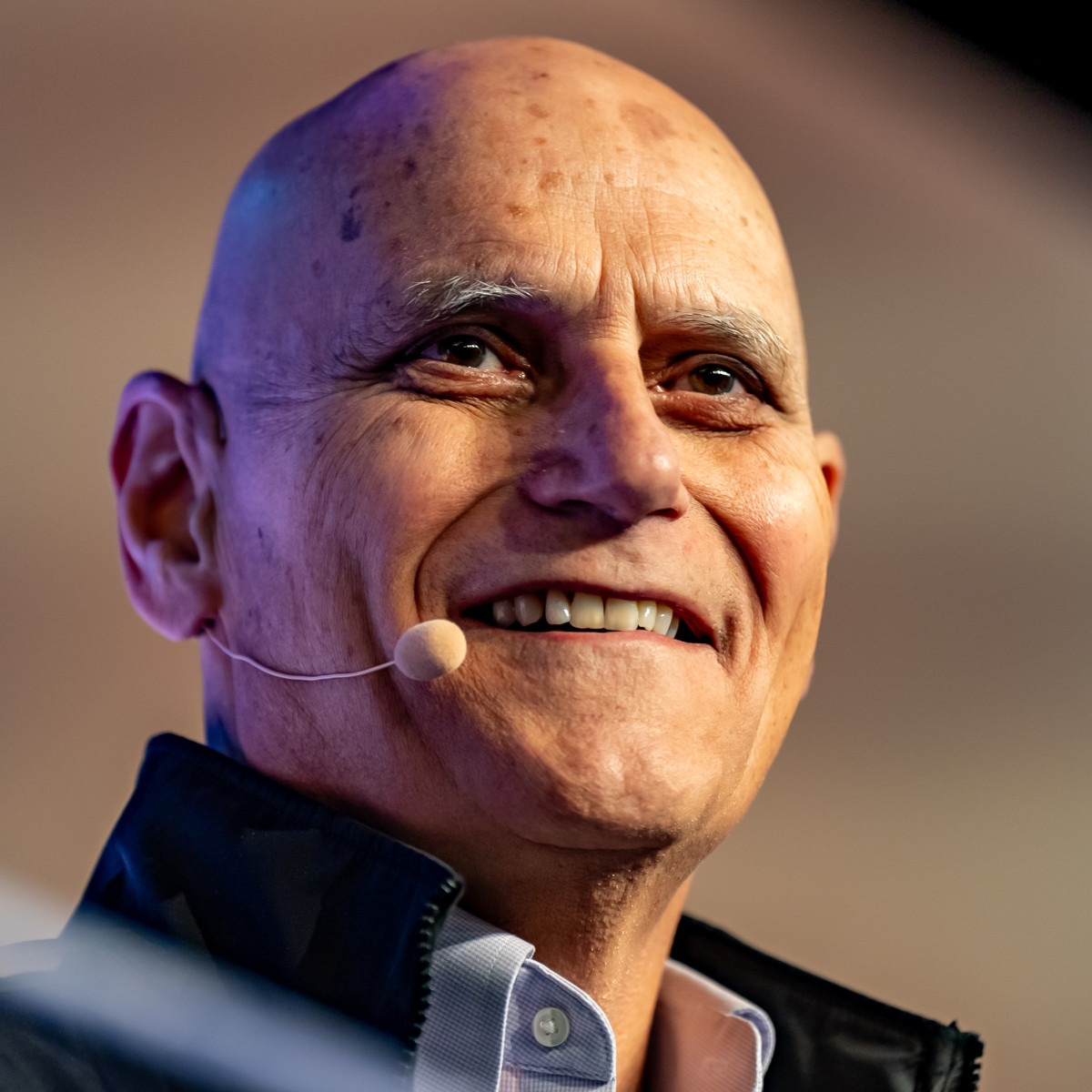
Steven C. Hayes, PhD
Steven C. Hayes is Nevada Foundation Professor Emeritus in Psychology at the University of Nevada, Reno, and President of the Institute for Better Health, a nearly 50-year-old charity dedicated to enhancing mental health care quality. He has authored 48 books and over 700 scientific articles, focusing on human language and cognition to alleviate suffering.
Steven C. Hayes is Nevada Foundation Professor Emeritus in Psychology at the University of Nevada, Reno, and President of the Institute for Better Health, a nearly 50-year-old charity dedicated to enhancing mental health care quality. He has authored 48 books and over 700 scientific articles, focusing on human language and cognition to alleviate suffering.
Hayes earned his Ph.D. in Clinical Psychology from West Virginia University in 1977, followed by a clinical internship at Brown University under David H. Barlow. His academic journey led him from the University of North Carolina, Greensboro, to UNR in 1986, where he served as Director of Clinical Training and later Chair, retiring in 2023.
He has been a prominent figure in behavioral and cognitive behavioral therapy, leading several major psychological associations, including the Association for Behavioral and Cognitive Therapies (ABCT) and the Association for Contextual Behavioral Science (ACBS). Hayes has secured about $15M funding for research and served on the National Advisory Council for Drug Abuse in the NIH.
His contributions have earned him numerous awards, including the Lifetime Achievement Award from the Association for Behavioral and Cognitive Therapy and the James McKeen Cattell Fellow Award from the Association for Psychological Science. He is recognized globally as one of the most influential and highly cited psychologists, ranked by Research.com and AD Scientific Index as among the top 5 clinical psychologists and among the top 25-75 o.
Hayes’s personal battle with panic disorder and agoraphobia catalyzed his development of Acceptance and Commitment Therapy (ACT) in the early 1980s. His work on ACT and Relational Frame Theory (RFT) has since transformed clinical psychology, leading to bestsellers like “Get Out of Your Mind and Into Your Life” and “A Liberated Mind”. Over the last decade, he has pioneered process-based therapy, culminating in three influential books, yet to be encapsulated in a self-help format until now.
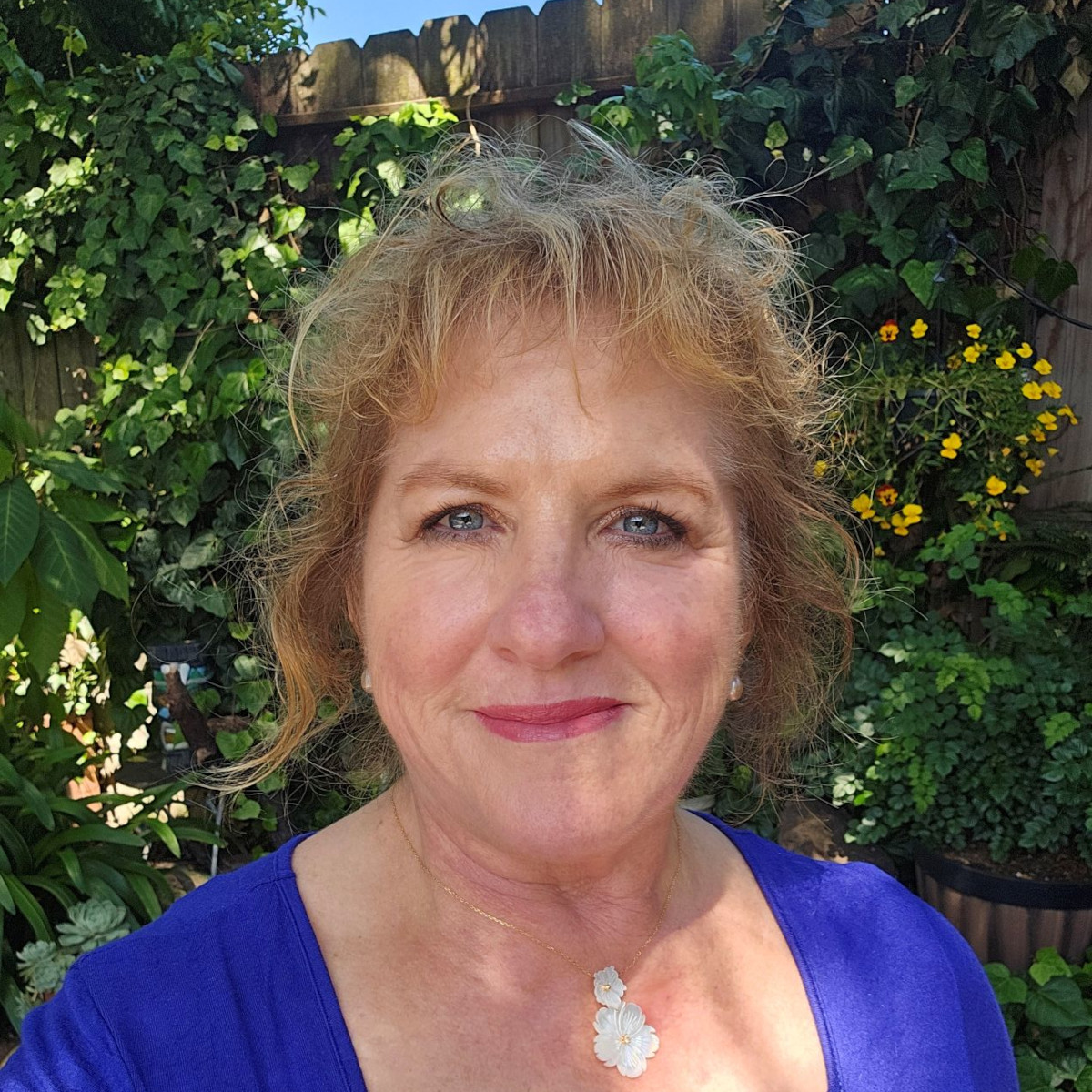
Robyn D. Walser, Ph.D.
Robyn D. Walser, Ph.D. is Director of TL Consultation Services and and works at the National Center for PTSD. She is the Co-Director of Bay Area Trauma Recovery Clinical Services and Assistant Professor at the University of California, Berkeley. As a licensed psychologist, she maintains an international training, consulting, and therapy practice. Dr. Walser is an expert in Acceptance and Commitment Therapy (ACT) and has co-authored seven books on ACT, including a book on learning ACT.
Robyn D. Walser, Ph.D. is Director of TL Consultation Services and and works at the National Center for PTSD. She is the Co-Director of Bay Area Trauma Recovery Clinical Services and Assistant Professor at the University of California, Berkeley. As a licensed psychologist, she maintains an international training, consulting, and therapy practice. Dr. Walser is an expert in Acceptance and Commitment Therapy (ACT) and has co-authored seven books on ACT, including a book on learning ACT.
She recently wrote the book The Heart of ACT- Developing a Flexible, Process-based, and Client-centered Practice Using Acceptance and Commitment Therapy. Dr. Walser has expertise in traumatic stress, depression, moral injury, and suicide; and has authored a number of articles, chapters, and books on these topics. She has been doing ACT workshops since 1997; training in multiple formats and for multiple client problems. Dr. Walser’s workshops feature a combination of didactic and experiential exercises designed to provide a unique learning opportunity in this state-of-the-art intervention.
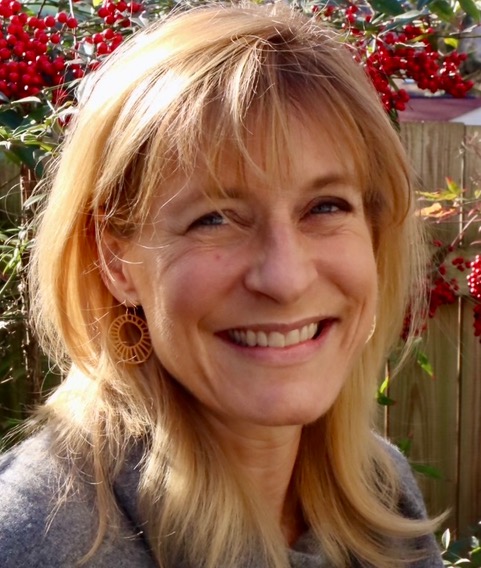
Miranda Morris, PhD
Miranda Morris, PhD is an ACBS Peer Reviewed ACT Trainer who conducts regular trainings in the US and internationally in ACT and other contextual behavioral therapies including Functional Analytic Psychotherapy (FAP) and clinical applications of Relational Frame Theory (RFT).
Miranda Morris, PhD is an ACBS Peer Reviewed ACT Trainer who conducts regular trainings in the US and internationally in ACT and other contextual behavioral therapies including Functional Analytic Psychotherapy (FAP) and clinical applications of Relational Frame Theory (RFT).
She is a licensed psychologist and the co-founder of True North Therapy and Training, a group practice in Bethesda, MD that is committed to providing and training practitioners in evidence based therapies. She currently serves as Past President on the Board of the Association for Contextual Behavioral Science (ACBS) and is President Emeritus of the Mid-Atlantic Chapter of the ACBS.
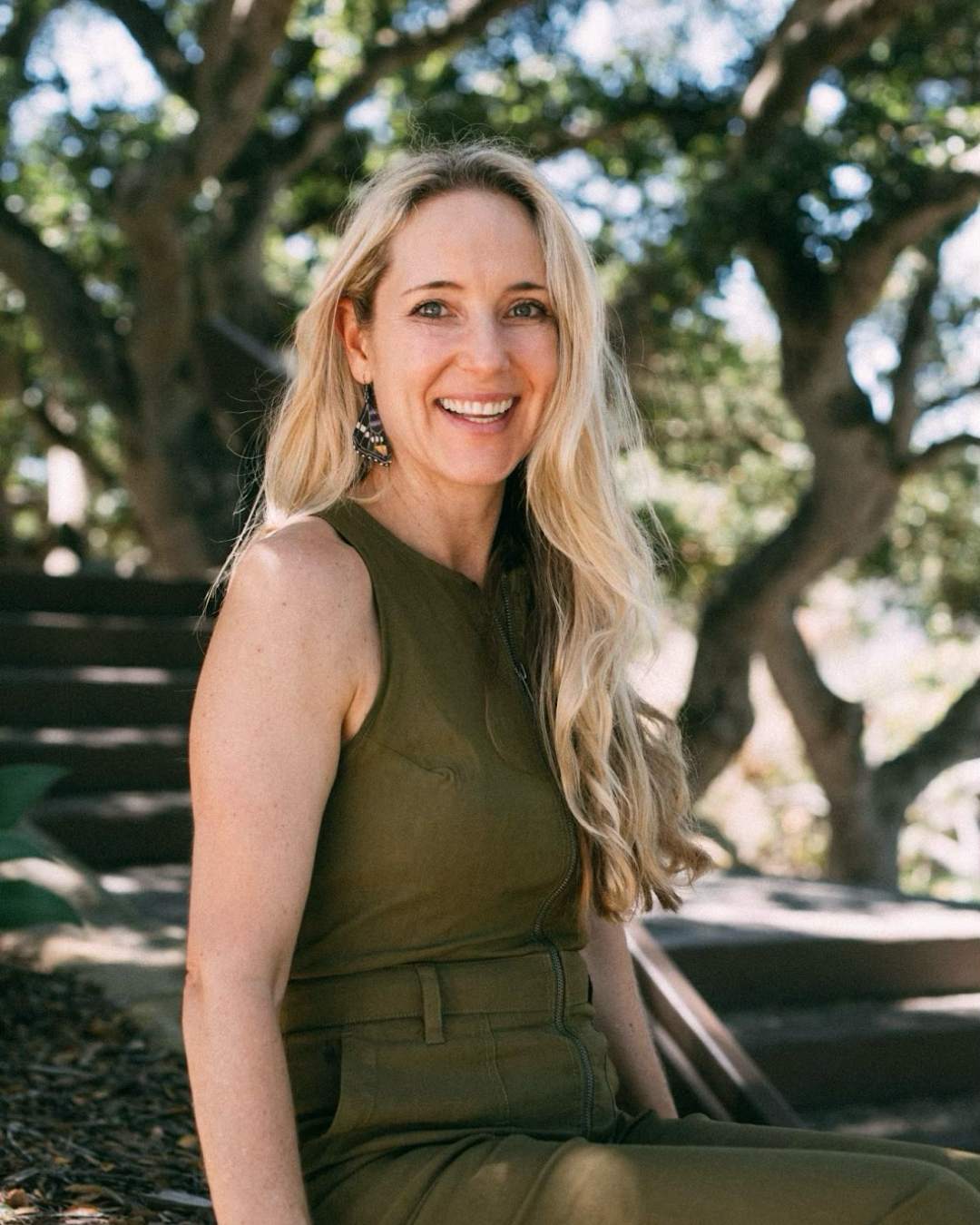
Diana Hill, Ph.D
Diana Hill, PhD, is a clinical psychologist, international trainer, and sought-out speaker on Acceptance and Commitment Therapy (ACT) and compassion. Integrating her 20+ years of meditation experience with yoga and psychological training, Diana leads retreats and workshops internationally at InsightLA, Blue Spirit Costa Rica, PESI, Praxis Continuing Education, Yoga Soup, and Insight Timer Meditation.
Diana Hill, PhD, is a clinical psychologist, international trainer, and sought-out speaker on Acceptance and Commitment Therapy (ACT) and compassion. Host of the podcast Wise Effort and author of I Know I Should Exercise But…, The Self-Compassion Daily Journal, The ACT Daily Journal, and the upcoming book Wise Effort, Diana works with organizations and individuals to develop psychological flexibility so that they can focus their genius energy on what matters most.
Integrating her 20+ years of meditation experience with yoga and psychological training, Diana leads retreats and workshops internationally at InsightLA, Blue Spirit Costa Rica, PESI, Praxis Continuing Education, Yoga Soup, and Insight Timer Meditation. She is on the board of the Institute for Better Health and blogs for Psychology Today and Mindful.org and has been featured in NPR, the Wall Street Journal, Woman’s Day, Real Simple Magazine, and numerous other media channels.
She is on the board of the Institute for Better Health and blogs for Psychology Today and Mindful.org and has been featured in NPR, the Wall Street Journal, Woman’s Day, Real Simple Magazine, and numerous other media channels.
Diana practices what she preaches in her daily life as a mom of two boys and bee guardian. Go to drdianahill.com or her channels on Instagram, Facebook, LinkedIn, and YouTube (@drdianahill) to learn more.
Program
In this foundational workshop, you’ll gain a deep understanding of the psychological flexibility model and build the skills to apply Acceptance and Commitment Therapy (ACT) with competence and confidence. Over the course of four days, Drs. Steven C. Hayes, Robyn D. Walser, Miranda Morris, and Diana Hill will walk you step-by-step through the theory and practice of Acceptance and Commitment Therapy – with trainer demonstrations, experiential exercises, practice sessions, and feedback from your peers.
This workshop will teach you…
- How to support your clients with ACT, while accounting for their individual needs and personal goals.
- How to fluidly apply the six core processes of change: acceptance, defusion, presence, self-as-context, chosen purpose, and committed action.
- How to recognize the early signs of inflexibility, so you know when and how your clients get stuck – both in session and outside of it.
- How to creatively pivot to psychological flexibility, by building your own toolkit with practical techniques, experiential exercises, and insightful metaphors
- How to enhance the therapeutic relationship, by keeping your clients engaged and motivated throughout the process, and committed to change.
And much more.
January 8, 2026 | Day 1, Thursday
General Session
8:00 a.m.-4:30 p.m.
6.5 CE Hours
Introduction to ACT and the Extended Psychological Flexibility Model | Miranda Morris, Ph.D.
During Day 1 you will learn the basics of the ACT model. You will learn about why functional contextualism (the philosophy of science that underlies ACT) matters in ACT work, and you will establish a basic understanding of relational frame theory (RFT— the theory of language that underlies ACT) and how it provides a foundation for ACT.
You will learn how psychological inflexibility is at the heart of human suffering. Enhancing psychological flexibility has been shown in hundreds of studies to improve therapeutic outcomes across many different conditions and in many different areas of human endeavor. Experiential exercises will bring these concepts to life and make them more concrete.
By the end of the day, you will have a basic set of skills in the expanded psychological flexibility model that underlies process-based ACT with its six core processes and their social or bodily extensions. An expanded psychological flexibility model includes a flexible sense of self; cognitive flexibility; emotional flexibility; flexible attention to the now; values and chosen purpose; and the behavioral flexibility to establish values-based habit.
All of these processes are then vitalized and extended to relationships, groups, and culture; and to your own body. Through experiential exercises you will learn how to develop these processes through a virtuous cycle of trying new things, learning what works best, and retaining those ways of being and doing that best foster your needs and values in a given situation.
Evening Session (Optional)
4:45 p.m.-6:45 p.m.
2 CE Hours
Flexible Implementation of ACT | Drs. Miranda Morris and Robyn Walser
This event will involve demonstrated real plays / role plays followed by interactive questions and answers. As modeling is one of the best forms of learning, clinicians will get a chance to see the experts apply the ACT model with real problems. After the real play you will get a behind the scenes look at what the therapist was targeting, unpack the processes applied, and ask questions so that you can adapt the skills to your clinical practice.
In these case demonstrations, highly experienced ACT trainers will work with the same person, applying the psychological flexibility model to the same case, but in different ways. After the demonstrations, the participants will be able to discuss how these methods landed with the client and will be able to dive into the trainers’ thinking, moment by moment.
The pedagogical purpose of this exercise is for attendees to see that there can be great flexibility in applying this model appropriately so as to assure attendees that all of them can learn to do so in a way that fits their particular personality, working style, setting, population, and scope of practice. The psychological flexibility model that underlies ACT was designed from the beginning to have that breadth, and research has shown that it does.
Schedule
-
- 7:00 a.m.-8:00 a.m.
Check-in* - 8:00 a.m-8:15 a.m.
Welcoming, Orientation, and Creating Collective Values to Support Learning - 8:15 a.m.-9:45 a.m.
How to Think Functionally and How Language Changes Everything - 9:45 a.m.-10:00 a.m.
Morning Break* - 10:00 a.m.-12:00 p.m.
Introduction to ACT and the Six Core Processes: Open - 12:00 p.m.-1:30 p.m.
Lunch Break* - 1:30 p.m.-2:45 p.m.
ACT and the Six Core Processes: Aware - 2:45 p.m.-3:00 p.m.
Afternoon Break* - 3:00 p.m.-4:30 p.m.
ACT and the Six Core Processes: Engaged - 4:30 p.m.-4:45 p.m.
Late Afternoon Break* (for those staying for optional evening discussion) - 4:45 p.m.-6:45 p.m.
Optional Evening Session: Flexible Implementation of ACT
- 7:00 a.m.-8:00 a.m.
*Not available for CE
January 9, 2026 | Day 2, Friday
General Session
8:00 a.m.–4:30 p.m.
6.5 CE Hours
ACT Model and Methods | Robyn D. Walser, PhD
The concepts learned in Day 1 will begin to take shape based on a more experiential learning process in Day 2. Dr. Walser will guide you through experiential exercises as well as give you key takeaways and skills you can use to enhance your practice. She will focus primarily on how ACT's expanded psychological flexibility model can be socially extended to vitalize the therapeutic relationship, enhance compassion, and shape the broadening and building agenda by using the relationship as a vehicle for change.
The goal is to begin to experience the space within which ACT work is done through experiential learning using examples of ACT processes that can be implemented with various clients and presentations. The space within which ACT is done will empower your ability to be creative and use the skills you learn in BootCamp, integrating ACT into your practice more effectively when you return to your therapy setting.
Evening Session (Optional)
4:45 p.m.–6:45 p.m.
2 CE Hours
Clinical Examples and Case Consultation | Drs. Robyn D. Walser and Steven C. Hayes
In this evening session the trainers will provide demonstrations of the use of core ACT principles in guiding case conceptualization and intervention. The demonstrations will involve real-life problems presented by workshop participants. Dr. Hayes will demonstrate how rapidly it is possible to move through an ACT space while maintaining a process focus. Following these real-plays, Drs. Walser and Hayes will answer audience questions related to the material taught during the day’s session as well as new issues raised by the demonstrations.
Schedule
-
- 7:00 a.m.–8:00 a.m.
Check-in* - 8:00 a.m.–9:45 a.m.
Expanding and Integrating the ACT Core Processes - 9:45 a.m.–10:00 a.m.
Morning Break* - 10:00 a.m.–12:00 p.m.
Expanding and Integrating the ACT Core Processes Continued - 12:00 p.m.–1:30 p.m.
Lunch Break* - 1:30 p.m.–2:45 p.m.
The ACT Therapeutic Stance and Essential Characteristics of the Therapeutic Relationship - 2:45 p.m.–3:00 p.m.
Afternoon Break* - 3:00 p.m.–4:30 p.m.
Growing Your Therapeutic Fluency Inside of Social Relationships: ACT Alliance as Vehicle for Change - 4:30 p.m.–4:45 p.m.
Late Afternoon Break* (for those staying for optional evening discussion) - 4:45 p.m.–6:45 p.m.
Optional Evening Session: Clinical Examples and Case Consultation
- 7:00 a.m.–8:00 a.m.
*Not available for CE
January 10, 2026 | Day 3, Saturday
General Session
8:00 a.m.-4:30 p.m.
6.5 CE Hours
ACT Skills-Building Intensive | Steven C. Hayes, PhD
Now that participants know the basics of the model, and have a feel for the space, we are going to go deeper into the skills that are involved in doing ACT. This day will involve mostly direct learning methods with round after round of clinical skills-building exercises and feedback. It is designed to help enhance your fluidity with using the extended psychological flexibility model and to provide you with a deeper understanding of ACT as well as specific tools and techniques you can use in your practice to enhance clinical outcomes.
The EEMM model of psychological flexibility will be shown as a natural extension of Days 1 and 2. You will learn how to read flexibility processes in flight and how to turn in any direction at any time within the model and to still do good work.
You will learn more about how to do individual functional analysis and to choose optimal treatment targets fitted to the individual; how to scale the flexibility model socially and physically and how to use it to understand and optimize the therapeutic relationship.
You will practice how to use every flexibility process in your moment-to-moment interactions with clients, even when they throw unexpected “curve balls” in session. You will consider how to incorporate other methods and processes into your ACT work without creating client confusion.
The end goal of this day is to give you the tool you need for your clients to become your teachers, polishing your ACT skills based on reliable short-term feedback that they cannot help but display. Once there, you can target flexibility processes, from flexibility processes, with flexibility processes confident that even methods you have developed in the moment are likely to land well and lead to client gains over the long term.
Evening Session (Optional)
4:45 p.m.-6:45 p.m.
2 CE Hours
Using the ACT Model in Your Practice | Drs. Steven C. Hayes and Diana Hill
In this evening session Drs. Diana Hill and Steven C. Hayes will show you how you can use the ACT model in your practice through the use of real plays and role plays. Watch these master clinicians use the ACT model dynamically, and learn how you can move flexibly through the model with your clients.
Schedule
- 7:00 a.m.-8:00 a.m.
Check-in* - 8:00 a.m.-9:45 a.m.
From It, Toward It, and Within It. How to Break Out of Normative Categories to Create a Plan you Can Use. - 9:45 a.m.-10:00 a.m.
Morning Break* - 10:00 a.m.-12:00 p.m.
Reading the Flexibility Processes - 12:00 p.m.-1:30 p.m.
Lunch Break* - 1:30 p.m.-2:45 p.m.
Opening the Door to Any Flexibility Process - 2:45 p.m.-3:00 p.m.
Afternoon Break* - 3:00 p.m.-4:30 p.m.
ACT Done Dynamically - 4:30 p.m.-4:45 p.m.
Late Afternoon Break (for those staying for optional evening discussion)* - 4:45 p.m.-6:45 p.m.
Optional Evening Session:Using the ACT Model in Your Practice
*Not available for CE
January 11, 2026 | Day 4, Sunday
General Session
8:00 a.m.–4:30 p.m.
6.5 CE Hours
Therapist Wisdom and Bringing the Processes of Change to Life | Diana Hill, PhD
We all have toolbelts full of tools that are supposed to help our clients. But the fact is, every client is different. And it's hard to know what "tool" to use with which client and when, even among those with the SAME diagnosis.
In this session you will use network modeling to create a powerful roadmap to support you in individualizing your approach for the person in front of you–not their diagnosis. You will explore the bio-psycho-social processes that underlie each unique client’s suffering, and be empowered to show up with your personal skills, orientation, and strengths. With this momentum, we will close with a unifying force of compassion and commitment to take what we have learned here to be of service in our practice and life.
Schedule
- 7:00 a.m.–8:00 a.m.
Check-in* - 8:00 a.m.–9:45 a.m.
Therapist Flexibility - 9:45 a.m.–10:00 a.m.
Morning Break* - 10:00 a.m.–12:00 p.m.
From Categories to Systems: Network Modeling - 12:00 p.m.–1:30 p.m.
Lunch Break* - 1:30 p.m.–2:45 p.m.
Let’s Give it a Try! Network Modeling - 2:45 p.m.–3:00 p.m.
Afternoon Break* - 3:00 p.m.–4:30 p.m.
Just Beyond Yourself: Embodying Compassion - No evening session on last night.
*Not available for CE
Learning Objectives
DAY 1
Introduction to ACT
Trainer: Miranda Morris, Ph.D.
- Describe the six processes that underlie psychological flexibility/inflexibility.
- Describe the importance of “context” in understanding client difficulties
- Explain what is meant by “workability”
- Identify and describe at least 2 in-session exercises that are designed to promote psychological flexibility.
- Describe and demonstrate how acceptance, defusion and other forms of cognitive and emotional flexibility work together in supporting openness to experience.
- Describe and demonstrate how flexible attention to the now, and a perspective-taking sense of self (“self-as-context”) assist in establishing awareness
- Describe and demonstrate how values and committed action (the creation of values-based habits) support meaningful living
Evening Session: Flexible Implementation of ACT (Optional)
Trainers: Miranda Morris, Ph.D.; Robyn D. Walser, Ph.D.
- Identify ways to use core psychological flexibility processes to focus on interpersonal connection and being bold in therapy
- Identify ways to use core psychological flexibility processes to foster creative hopelessness.
- Demonstrate the flexible use of multiple core processes in a single episode of contact with a client
DAY 2
ACT Model and Methods
Trainer: Robyn D. Walser, Ph.D.
- Describe the utility and power of openness and defusion in creating psychological flexibility.
- Describe and demonstrate how the use of perspective-taking and awareness are essential to creating flexibility.
- Describe and demonstrate how committed action and values clarification work together in creating meaning and behavioral goals.
- Define the essential characteristics of the therapeutic relationship from an ACT point of view, including intrapersonal and interpersonal processes.
- Describe the ACT therapeutic stance.
- Describe and demonstrate the ACT therapeutic relationship and its core competencies.
Evening Session: Clinical Examples and Case Consultation using ACT (Optional)
Trainers: Robyn D. Walser, Ph.D.; Steven C. Hayes, Ph.D.
- Identify ways to use core psychological flexibility processes with challenging or stuck clients.
- Identify ways to use core psychological flexibility processes to focus on qualities of the interpersonal relationship.
- Explain how integrating ACT into your practice can positively impact your work with clients.
DAY 3
ACT Skills-Building Intensive
Trainer: Steven C. Hayes, Ph.D.
- Describe how psychological flexibility processes apply to the therapeutic relationship.
- Describe the three overall and essential functions of the ACT clinician regarding psychological flexibility in the therapy session.
- Describe at least one way of reading each flexibility process as it shows up in session.
- Demonstrate the ability to detect flexibility-relevant material in session.
- Describe at least one generally useful method of opening the door to each of the flexibility processes in session.
- Demonstrate the ability to shift the focus to any flexibility target at will.
- Demonstrate the ability to respond to any client statement from any flexibility process.
- Demonstrate the ability to do useful work from any flexibility process.
Evening Session: Using the ACT Model in Your Practice (Optional)
Trainer: Diana Hill, Ph.D.; Steven C. Hayes, Ph.D.
- Identify how you can use the ACT model flexibly in your practice, moving from process to process as needed.
- Identify core tactics and skills you can use with clients.
DAY 4
Therapist Flexibility and Wisdom
Trainer: Diana Hill, Ph.D.
- Describe why the network approach is a radical shift in case conceptualization.
- Identify the psychological, biological and sociocultural nodes of a network.
- Review how to individuate treatment and why not every client gets the same thing.
- Summarize how to use network modeling in case conceptualization.
- Describe how to cultivate compassionate wisdom with your clients.
Continuing Education
This professional continuing education activity was sponsored by Praxis Continuing Education and Training by New Harbinger and co-sponsored by the Institute for Better Health. Praxis Continuing Education and Training by New Harbinger, who has been approved as a provider of continuing education by the organizations listed below, maintains responsibility for the educational activity offered and for following the standards and regulations for the organizations. This live in-person activity is approved for up to 32 CE hours. All of the sessions in this activity are planned for mental health professionals at a beginner level.
Joint Accreditation: In support of improving patient care, this activity has been planned and implemented by Praxis Continuing Education and Training by New Harbinger and the Institute for Better Health. Praxis Continuing Education and Training by New Harbinger is jointly accredited by the Accreditation Council for Continuing Medical Education (ACCME), the Accreditation Council for Pharmacy Education (ACPE), and the American Nurses Credentialing Center (ANCC), to provide continuing education for the healthcare team.
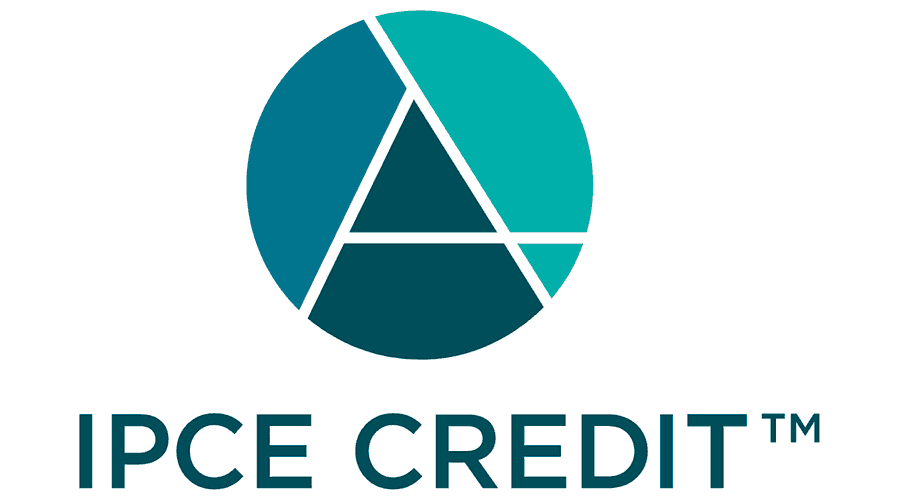
IPCE: This activity was planned by and for the healthcare team, and learners will receive 1 Interprofessional Continuing Education (IPCE) credit for learning and change per hour attended.

Psychologists: Continuing Education (CE) credits for psychologists are provided through the co-sponsorship of the American Psychological Association (APA) Office of Continuing Education in Psychology (CEP). The APA CEP Office maintains responsibility for the content of the programs.
Social Workers: As a Jointly Accredited Organization, Praxis Continuing Education and Training by New Harbinger is approved to offer social work continuing education by the Association of Social Work Boards (ASWB) Approved Continuing Education (ACE) program. Organizations, not individual courses, are approved under this program. Regulatory boards are the final authority on courses accepted for continuing education credit. Social workers completing this course receive 1 clinical continuing education credit per hour attended.
Behavior Analysts: Praxis Continuing Education and Training is an approved BACB ACE Provider # OP-17-2718. This course is approved for 1 learning CEU per hour attended.
NY Social Workers: Praxis Continuing Education and Training by New Harbinger is recognized by the New York State Education Department's State Board for Social Work as an approved provider of continuing education for licensed social workers #SW-0467
NY Counselors: Praxis Continuing Education and Training by New Harbinger is recognized by the New York State Education Department's State Board for Mental Health Practitioners as an approved provider of continuing education for licensed mental health counselors. #MHC-0198.
NY Psychologists: Praxis Continuing Education and Training by New Harbinger is recognized by the New York State Education Department's State Board for Psychology as an approved provider of continuing education for licensed psychologists #PSY-0002.
NOTE: Many state boards accept offerings accredited by national or other state organizations. If your state is not listed, please check with your professional licensing board to determine whether the accreditations listed are accepted.
Disclosure Information:
All those in a position to control the content of an education activity are asked to disclose any relevant financial relationships they have with any ineligible companies.
There is no commercial support for this activity.
None of the planners or presenters for this educational activity have relevant financial relationship(s) to disclose with ineligible companies whose primary business is producing, marketing, selling, re-selling, or distributing healthcare products used by or on patients.
Requirements
There are no requirements to join. This workshop is for mental health professionals of all kinds, including therapists, psychologists, counselors, coaches, social workers, trainers, and other change agents – regardless of whether you consider yourself a complete beginner or experienced in another approach.
Recommended Reading
These texts are not prerequisites to attend the training. However, should you like to deepen your understanding of ACT and its core processes, the following are useful:
- Luoma, J., Hayes, S. C., & Walser, R. (2017). Learning ACT (2nd ed.). Oakland, CA: New Harbinger.
- Harris, R. (2009). ACT made simple: An easy-to-read primer on acceptance and commitment therapy. Oakland, CA: New Harbinger Publications.
References
Gloster, A. T., Walder, N., Levin, M. E., Twohig, M. P., & Karekla, M. (2020). The empirical status of acceptance and commitment therapy: A review of meta-analyses. Journal of Contextual Behavioral Science, 18, 181–192.
Wharton, E., Edwards, K. S., Juhasz, K., & Walser, R. D. (2019). Acceptance-based interventions in the treatment of PTSD: Group and individual pilot data using Acceptance and Commitment Therapy. Journal of Contextual Behavioral Science, 14, 55–64.
Walser, R. D., & O’Connell, M. (2021). Acceptance and commitment therapy and the therapeutic relationship: Rupture and repair. Journal of Clinical Psychology, 77(2), 429–440.
Walser, R. D., Karlin, B. E., Trockel, M., Mazina, B., & Taylor, C. B. (2013). Training in and implementation of Acceptance and Commitment Therapy for depression in the Veterans Health Administration: Therapist and patient outcomes. Behaviour Research and Therapy, 51(9), 555–563.
Godbee, M., & Kangas, M. (2020). The relationship between flexible perspective taking and emotional well-being: A systematic review of the ‘self-as-context’ component of acceptance and commitment therapy. Behavior Therapy, 51(6), 917–932.
Kolden, G. G., Wang, C.-C., Austin, S. B., Chang, Y., & Klein, M. H. (2018). Congruence/genuineness: A meta-analysis. Psychotherapy, 55(4), 424.
Follette, W. C., Naugle, A. E., & Callaghan, G. M. (1996). A radical behavioral understanding of the therapeutic relationship in effecting change. Behavior Therapy, 27(4), 623–641. https://doi.org/10.1016/S0005-7894(96)80047-5
Eubanks, C. F., Muran, J. C., & Safran, J. D. (2018). Alliance rupture repair: A meta-analysis. Psychotherapy, 55(4), 508–519. https://doi.org/10.1037/pst0000185
Hayes, S. C., & Hofmann, S. G. (2017). The third wave of cognitive behavioral therapy and the rise of process-based care. World Psychiatry, 16(3), 245. http://dx.doi.org/10.1002/wps.20442
Doorley, J. D., Goodman, F. R., Kelso, K. C., & Kashdan, T. B. (2020). Psychological flexibility: What we know, what we do not know, and what we think we know. Social and Personality Psychology Compass, 14(12), 1–11.
Falletta-Cowden, N., Smith, P., Hayes, S. C., Georgescu, S., & Kolahdouzan, S. A. (2022). What the body reveals about lay knowledge of psychological flexibility. Journal of Clinical Medicine, 11(10), 2848.
Ong, C. W., Lee, E. B., Levin, M. E., & Twohig, M. P. (2019). A review of AAQ variants and other context-specific measures of psychological flexibility. Journal of Contextual Behavioral Science, 12, 329–346.
Johannsen, M., Nissen, E. R., Lundorff, M., & O’Toole, M. S. (in press; 2022). Mediators of acceptance and mindfulness-based therapies for anxiety and depression: A systematic review and meta-analysis. Clinical Psychology Review, 94. doi: 10.1016/j.cpr.2022.102156
Jacobson, E., Wilson, K. G., Kurz, A. S., & Kellum, K. K. (2018). Examining self-compassion in romantic relationships. Journal of Contextual Behavioral Science. doi: 10.1016/j.jcbs.2018.04.003
Rolffs, J. L., Rogge, R. D., & Wilson, K. G. (2016). Disentangling components of flexibility via the Hexaflex Model: Development and validation of the Multidimensional Psychological Flexibility Inventory (MPFI). Assessment, 25, 458–482. doi: 10.1177/1073191116645905
Hayes, S. C., & Hofmann, S. G. (2021). ‘Third-wave’ cognitive and behavioral therapies and the emergence of a process-based approach to intervention in psychiatry. World Psychiatry, 20(3), 363–375. DOI: 10.1002/wps.20884
Hebert, E. R., Flynn, M. K., Wilson, K. G., & Kellum, K. K. (2021). Values intervention as an establishing operation for approach in the presence of aversive stimuli. Journal of Contextual Behavioral Science, 20, 144–154.
Hayes, S. C., Hofmann, S. G., & Wilson, D. S. (2020). Clinical psychology is an applied evolutionary science. Clinical Psychology Review, 81, 101892. doi: 10.1016/j.cpr.2020.101892
Hayes, S. C., Hofmann, S. G., & Ciarrochi, J. (2020). A process-based approach to psychological diagnosis and treatment: The conceptual and treatment utility of an extended evolutionary model. Clinical Psychology Review, 82, 101908. doi: 10.1016/j.cpr.2020.101908
Villatte, J. L., Vilardaga, R., Villatte, M., Vilardaga, J. C. P., Atkins, D. A., & Hayes, S. C. (2016). Acceptance and Commitment Therapy modules: Differential impact on treatment processes and outcomes. Behaviour Research & Therapy, 77, 52–61. doi: 10.1016/j.brat.2015.12.001
Yadavaia, J., Vilardaga, R., & Hayes, S. C. (2014). Using Acceptance and Commitment Therapy to increase self-compassion: A randomized controlled trial. Journal of Contextual Behavioral Science, 3, 248–257. doi: 10.1016/j.jcbs.2014.09.002
Ciarrochi, J., Hayes, S. C., Oades, L. G., & Hofmann, S. G. (2022). Towards a unified framework for positive psychology interventions: Evidence-based processes of change. Frontiers in Psychology. 10 February 2022. doi: 10.3389/fpsyg.2021.809362
Something Came Up?
Don’t Worry!
You can get a full refund if you cancel your registration up to 14 days before the workshop starts, minus an administrative processing fee of $50. If you cancel within 14 days before the workshop, however, no refund will be issued. In this case, we are happy to offer you a credit for a future event. If you need to cancel your registration or if you have any other questions, please contact us at staff@ibh.com.
